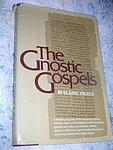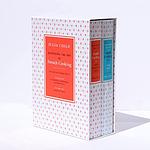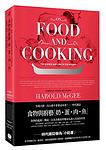The Greatest American "Encyclopedias & Subject Guides" Books of All Time
Click to learn how this list is calculated.
This list represents a comprehensive and trusted collection of the greatest books. Developed through a specialized algorithm, it brings together 300 'best of' book lists to form a definitive guide to the world's most acclaimed books. For those interested in how these books are chosen, additional details can be found on the rankings page.
Genres
Encyclopedias & Subject Guides is a category of books that provides comprehensive information on a particular subject or a wide range of topics. These books are designed to serve as a reference guide for readers who want to gain a deeper understanding of a subject or need quick access to information. Encyclopedias typically cover a broad range of topics, while subject guides focus on a specific area of interest. These books are often used by students, researchers, and professionals as a reliable source of information. They are an essential resource for anyone seeking to expand their knowledge on a particular subject or field.
Countries
Date Range
Reading Statistics
Click the button below to see how many of these books you've read!
Download
If you're interested in downloading this list as a CSV file for use in a spreadsheet application, you can easily do so by clicking the button below. Please note that to ensure a manageable file size and faster download, the CSV will include details for only the first 500 books.
Download-
1. The Structure of Scientific Revolutions by Thomas Kuhn
This influential book examines the history of science, focusing on the process of scientific revolutions. The author argues that scientific progress is not a linear, continuous accumulation of knowledge, but rather a series of peaceful interludes punctuated by intellectually violent revolutions. During these revolutions, known as paradigm shifts, the old scientific worldview is replaced by a new one. The book also popularized the term 'paradigm shift' and challenged the previously accepted view of science as a steadily progressive discipline.
-
2. A Distant Mirror by Barbara Tuchman
"A Distant Mirror" is a historical narrative that vividly depicts the calamitous 14th century, a time marked by the Black Death, religious strife, and the Hundred Years War. The book follows the life of a French nobleman, offering a detailed account of his experiences and the broader social, political, and cultural transformations of the era. The author draws parallels between the 14th century and the 20th century, highlighting recurrent patterns in history such as warfare, pandemics, and societal unrest.
-
3. The Guns of August by Barbara Tuchman
"The Guns of August" is a detailed and engaging account of the first month of World War I. The book explores the events leading up to the war, the political and military strategies of the various countries involved, and the critical decisions that shaped the course of the conflict. It presents a vivid picture of the war's early stages, highlighting the miscalculations, miscommunications, and misunderstandings that led to one of the most devastating wars in history.
-
4. The Gnostic Gospels by Elaine Pagels
This book explores the findings of the Nag Hammadi library, a collection of gnostic texts discovered in 1945. The author examines these texts, which were excluded from the canonical Bible, and discusses their implications for our understanding of early Christianity. The book delves into the diversity of beliefs in early Christian communities, the role of women in these groups, and the political and theological reasons behind the formation of the orthodox Christian canon.
-
5. The Hero with a Thousand Faces by Joseph Campbell
This book explores the theory that important myths from around the world which have survived for thousands of years all share a fundamental structure, which the author calls the "monomyth." It outlines the stages of this monomyth, which include a hero's call to adventure, a descent into the underworld, and a triumphant return. The book also discusses how these universal patterns can provide a framework for understanding human experience and the world around us.
-
6. Mastering the Art of French Cooking by Julia Child, Simone Beck, Louisette Bertholle
This book is a comprehensive guide to traditional French cuisine, providing detailed instructions on how to prepare classic French dishes. It covers everything from basic techniques to complex recipes, all explained in a clear and accessible way. The book also includes tips on selecting ingredients, planning meals, and pairing wines, making it an essential resource for anyone interested in French cooking.
-
7. On Food and Cooking: The Science and Lore of the Kitchen by Harold McGee
This book is an in-depth exploration of the science and history behind various culinary techniques and ingredients. It provides readers with a comprehensive understanding of how and why certain cooking processes work, from the chemical reactions involved in baking to the origins of different food traditions. The book also delves into the nutritional value of foods, offering insights into how different preparation methods can impact health. It's a must-read for anyone interested in the science of cooking and the cultural significance of food.
-
8. The Immense Journey by Loren Eiseley
"The Immense Journey" is a collection of essays that explore the wonders and mysteries of nature and human existence. The author, a renowned anthropologist, shares his insights and reflections on evolution, the cosmos, and the interconnectedness of all living things. Through vivid storytelling and poetic prose, he takes readers on a journey from the microscopic world of a single cell to the vast expanses of space, revealing the profound beauty and complexity of the natural world.
-
9. The Beauty Myth by Naomi Wolf
The book is a groundbreaking work that explores how images of beauty are used against women, impacting them psychologically and socially. It critically examines the beauty industry and the societal pressures on women to conform to certain standards of appearance. The author argues that the obsession with physical perfection traps the modern woman in an endless cycle of hope, self-consciousness, and self-hatred as she tries to fulfill society's impossible definition of the flawless beauty.
-
10. Great River: The Rio Grande in North American History by Paul Horgan
This book provides an in-depth historical account of the Rio Grande, one of North America's significant rivers. The narrative is divided into four parts, each representing a different era in the river's history. The author meticulously explores the indigenous cultures that first inhabited its banks, the Spanish conquest, the Mexican-American War, and the modern development of the river. The book is not just about the river itself, but also about the people, cultures, and events that have shaped its course and the region surrounding it.
-
11. Borrowed Time by Paul Monette
"Borrowed Time" is a memoir that chronicles the life of a man and his partner, both diagnosed with AIDS. The narrative provides a deeply personal and raw account of their battle with the disease, highlighting the fear, courage, and love they experienced. The book also sheds light on the early years of the AIDS epidemic in the United States and the lack of understanding and stigma associated with the disease at the time.
Reading Statistics
Click the button below to see how many of these books you've read!
Download
If you're interested in downloading this list as a CSV file for use in a spreadsheet application, you can easily do so by clicking the button below. Please note that to ensure a manageable file size and faster download, the CSV will include details for only the first 500 books.
Download









